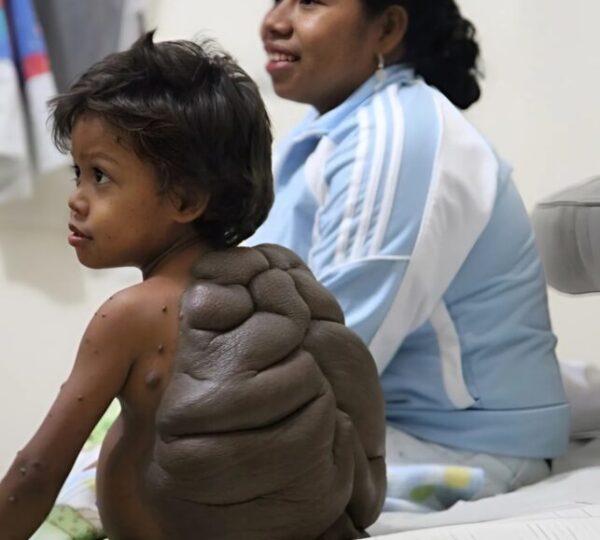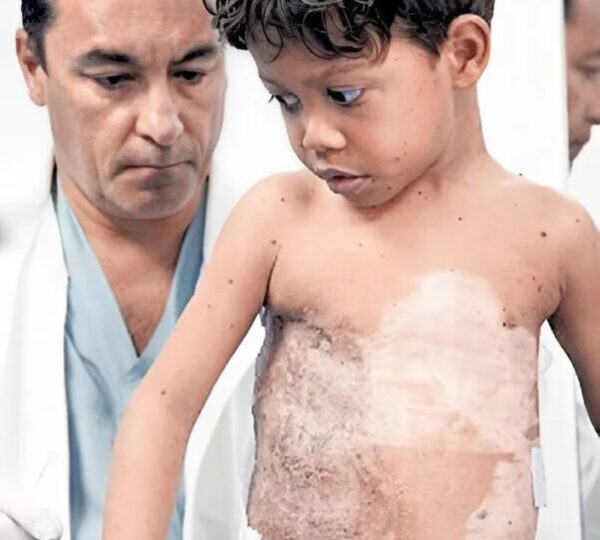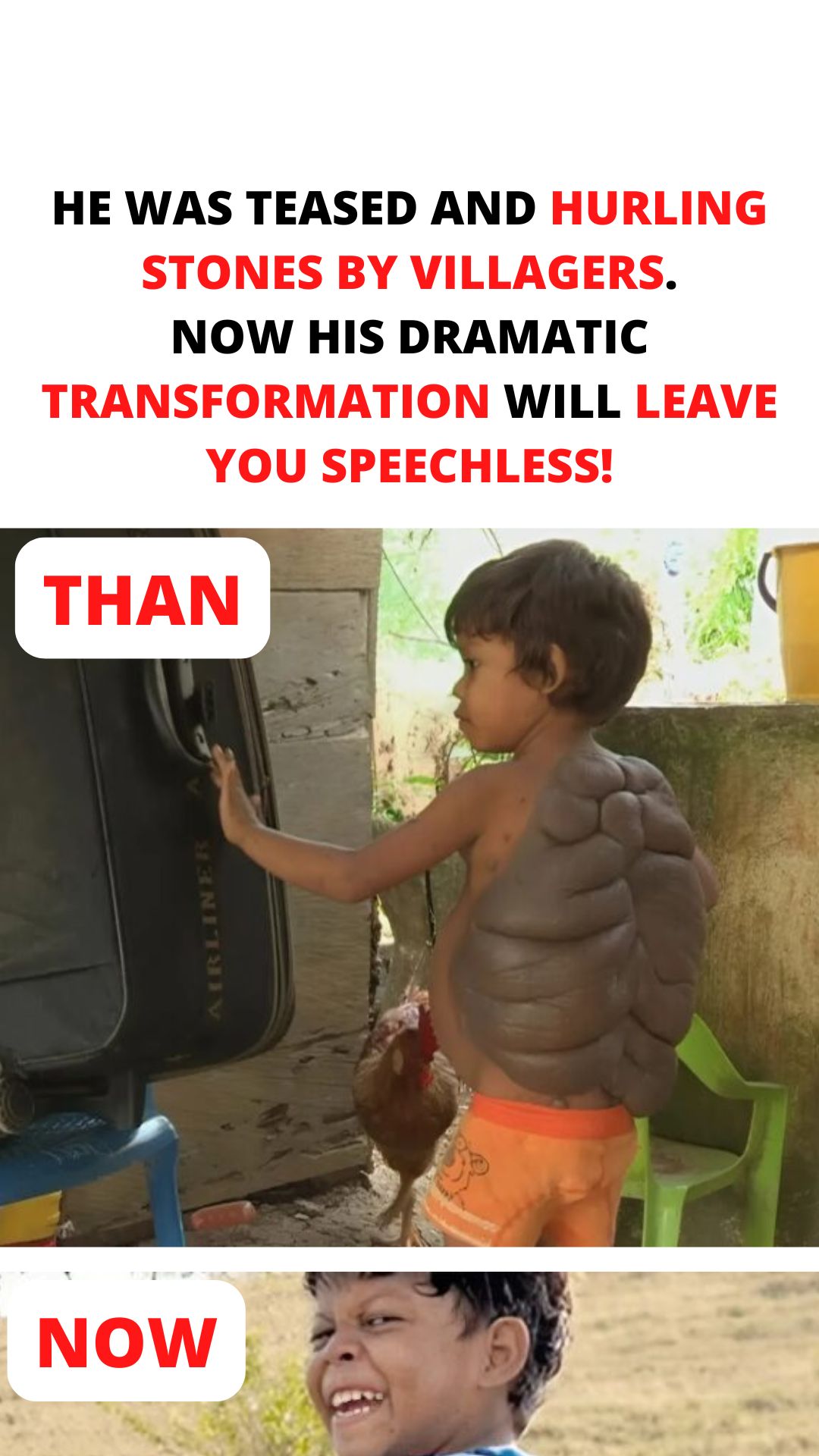Once Bullied and Pelted with Stones by Villagers, His Incredible Transformation Will Astonish You!
Didier Montalvo, a young boy from Colombia, lived much of his childhood as an outcast in his own community. From a very young age, he was different—not because of anything he did, but because of a rare and severe medical condition that affected his body. His classmates shunned him and cruelly gave him the nickname “turtle boy,” a name inspired by the massive growth on his back that resembled a turtle’s shell. This nickname, however, reflected not just their ignorance but the stigma and prejudice Didier endured every day.
Despite these hardships, Didier’s story took a remarkable turn after years of struggle and pain. The beginnings of Didier’s condition appeared when he was just a toddler. Small pigmented patches formed on his skin, which at first seemed harmless. However, by the time he was six years old, these spots had grown into an unusual and rapidly expanding growth that covered nearly 40% of his body.
This growth severely impacted his ability to move freely. As the growth spread, Didier’s physical mobility became increasingly limited, making everyday activities difficult. The extra weight he carried also made it challenging for him to participate in regular childhood play and physical exercise. After many years of uncertainty and suffering, Didier’s mother, Luz, finally sought medical advice. Doctors diagnosed Didier with congenital melanocytic nevus, a rare genetic disorder that affects only about 1% of the global population. This condition causes large, pigmented, often thickened areas of skin that can sometimes develop into cancerous growths.
Physicians warned the family that if left untreated, the growth could potentially turn malignant, posing a severe threat to Didier’s health. Unfortunately, the family’s financial situation made it impossible for them to afford the necessary surgical treatments for a long time, prolonging Didier’s suffering. Aside from the physical pain and limitations caused by his condition, Didier faced harsh social challenges. He was subjected to constant bullying and discrimination from both peers and adults in his village. Many people avoided him, mocked him openly, and on some occasions even threw stones at him. Superstition and ignorance fueled the hostility against him.

Some villagers believed that Didier’s condition was the result of supernatural forces, accusing his mother of conceiving him during a full moon and attributing his appearance to demonic spirits. This cruel mistreatment isolated Didier further and forced the family to consider relocating to another community, though even there, acceptance was hard to come by. Didier’s life changed dramatically in 2012 when news of his condition reached British surgeon Neil Bulstrode, a specialist known for his work with patients suffering from rare and complex conditions. Moved by Didier’s plight, Bulstrode volunteered to travel to Colombia to provide free surgical care. The operation was extensive and required the expertise of a skilled surgical team, but it was ultimately successful in removing the large growths from Didier’s body.

Following the surgery, Didier’s quality of life improved significantly. Not only did the physical burden lessen, allowing him to move and live more comfortably, but his social acceptance began to shift as well. The same villagers who had once rejected and tormented him started to see him in a new light. With his improved appearance and renewed confidence, Didier was welcomed back to school and allowed to participate more fully in community life. This transformation was not just physical—it marked the restoration of his dignity and his ability to enjoy a childhood free from fear and exclusion.
Today, Didier’s story is an inspiring example of resilience and hope. It demonstrates how, even in the face of overwhelming adversity—be it medical, social, or emotional—human dignity can be reclaimed. Didier’s journey from a boy who was mocked, isolated, and physically burdened, to a young man who has undergone life-changing surgery and regained his place in society, is a powerful reminder of the importance of compassion, medical intervention, and community support.
His experience highlights the need for greater awareness and understanding of rare medical conditions and the impact that prejudice and superstition can have on individuals and families. Didier’s courage and the generosity of those who helped him stand as a testament to the power of kindness and medical progress in transforming lives.
